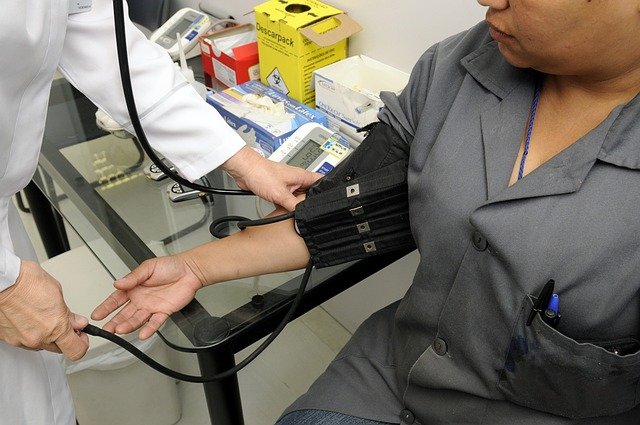Recognizing the Warning Signs of Hemoglobinuria – Don’t Ignore Them
Strange changes in urine color, unexplained fatigue, or discomfort could point to hemoglobinuria — a condition that may silently damage your kidneys if left unnoticed. Recognizing its warning signs early is key to avoiding serious complications. Here’s what to look for and why timely medical attention matters more than ever.

What is hemoglobinuria and how does it affect the body?
Hemoglobinuria is a medical condition characterized by the presence of hemoglobin in the urine. To understand its impact on the body, let’s break down the key points:
-
Definition: Hemoglobinuria occurs when hemoglobin, the oxygen-carrying protein in red blood cells, is released into the urine.
-
Cause: It results from the breakdown of red blood cells within the bloodstream.
-
Appearance: Urine may appear dark, cola-colored, or reddish due to the presence of hemoglobin.
-
Kidney impact: Excess hemoglobin can damage the kidneys’ filtration system.
-
Systemic effects: It may lead to anemia, fatigue, and increased risk of blood clots.
Understanding hemoglobinuria is crucial for recognizing its potential severity and seeking appropriate medical attention.
What are the early signs of hemoglobinuria?
Identifying hemoglobinuria in its early stages can be challenging, as symptoms may be subtle or easily overlooked. Here’s a list of early signs to watch for:
-
Dark or reddish-brown urine
-
Fatigue or weakness
-
Shortness of breath
-
Pale skin
-
Chest pain or difficulty breathing
-
Abdominal pain
-
Jaundice (yellowing of the skin and eyes)
-
Cold hands and feet
-
Headaches
If you experience any combination of these symptoms, especially changes in urine color, it’s important to consult a healthcare professional promptly.
What health risks are linked to blood in the urine?
The presence of blood in the urine, known as hematuria, can be a sign of hemoglobinuria or other serious conditions. Associated health risks include:
-
Kidney damage or failure
-
Chronic anemia
-
Increased risk of blood clots
-
Cardiovascular complications
-
Pulmonary hypertension
-
Impaired immune function
-
Increased susceptibility to infections
-
Bone marrow dysfunction
-
Liver problems
-
Potential for certain types of cancer
These risks underscore the importance of seeking medical evaluation when blood is detected in the urine.
What causes dark or reddish urine you shouldn’t ignore?
While hemoglobinuria is a significant cause of dark or reddish urine, several other conditions can lead to similar changes in urine color:
-
Urinary tract infections (UTIs)
-
Kidney stones
-
Bladder or kidney tumors
-
Prostate problems
-
Certain medications or foods
-
Liver disease
-
Porphyria
-
Extreme exercise
-
Dehydration
-
Paroxysmal nocturnal hemoglobinuria (PNH)
It’s crucial to note that any persistent change in urine color warrants medical attention, as it could be a sign of a serious underlying condition.
Why does hemoglobin in urine require urgent attention?
The presence of hemoglobin in urine is a red flag that demands immediate medical evaluation for several reasons:
-
Kidney damage: Hemoglobin can clog and damage the kidney’s delicate filtration system, potentially leading to acute or chronic kidney disease.
-
Underlying conditions: Hemoglobinuria may indicate serious health issues such as autoimmune disorders, blood diseases, or genetic conditions that require prompt diagnosis and treatment.
-
Anemia risk: Continuous loss of hemoglobin can result in anemia, causing fatigue, weakness, and other systemic problems.
-
Clotting complications: Some conditions causing hemoglobinuria, like PNH, increase the risk of dangerous blood clots.
-
Early intervention: Timely treatment can prevent or minimize long-term complications and improve overall prognosis.
-
Diagnostic value: Detecting hemoglobinuria early can lead to faster identification of the underlying cause, allowing for more effective treatment strategies.
Given these critical factors, any suspicion of hemoglobin in the urine should be addressed by a healthcare professional without delay.
How is nocturnal hemoglobinuria treated?
Nocturnal hemoglobinuria, particularly paroxysmal nocturnal hemoglobinuria (PNH), requires specialized treatment approaches. Here’s an overview of current treatment options:
-
Complement inhibitors: Medications like eculizumab or ravulizumab that block the complement system responsible for red blood cell destruction.
-
Supportive care: Blood transfusions, iron supplementation, and folic acid to manage anemia.
-
Anticoagulants: To reduce the risk of blood clots, a common complication of PNH.
-
Bone marrow transplantation: In severe cases, this may be considered as a potential cure.
-
Gene therapy: Emerging treatments targeting the genetic defect causing PNH are under investigation.
| Treatment | Purpose | Potential Benefits |
|---|---|---|
| Eculizumab (Soliris) | Complement inhibitor | Reduces hemolysis, improves anemia |
| Ravulizumab (Ultomiris) | Long-acting complement inhibitor | Less frequent dosing, sustained protection |
| Anticoagulants (e.g., warfarin) | Prevent blood clots | Reduces risk of thrombotic events |
| Bone marrow transplant | Potential cure | May eliminate the need for ongoing treatment |
Prices, rates, or cost estimates mentioned in this article are based on the latest available information but may change over time. Independent research is advised before making financial decisions.
The treatment of nocturnal hemoglobinuria, particularly PNH, has advanced significantly in recent years. While these treatments can be highly effective in managing symptoms and reducing complications, they often require long-term administration and close medical supervision.
In conclusion, recognizing the warning signs of hemoglobinuria is crucial for early detection and treatment. Whether it’s a change in urine color, unexplained fatigue, or other symptoms, prompt medical attention can make a significant difference in managing the condition and preventing serious complications. Always consult with a healthcare professional if you suspect any issues related to hemoglobinuria or changes in your urinary health.
This article is for informational purposes only and should not be considered medical advice. Please consult a qualified healthcare professional for personalized guidance and treatment.




